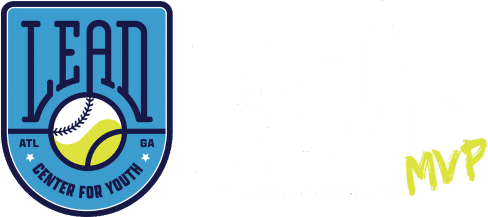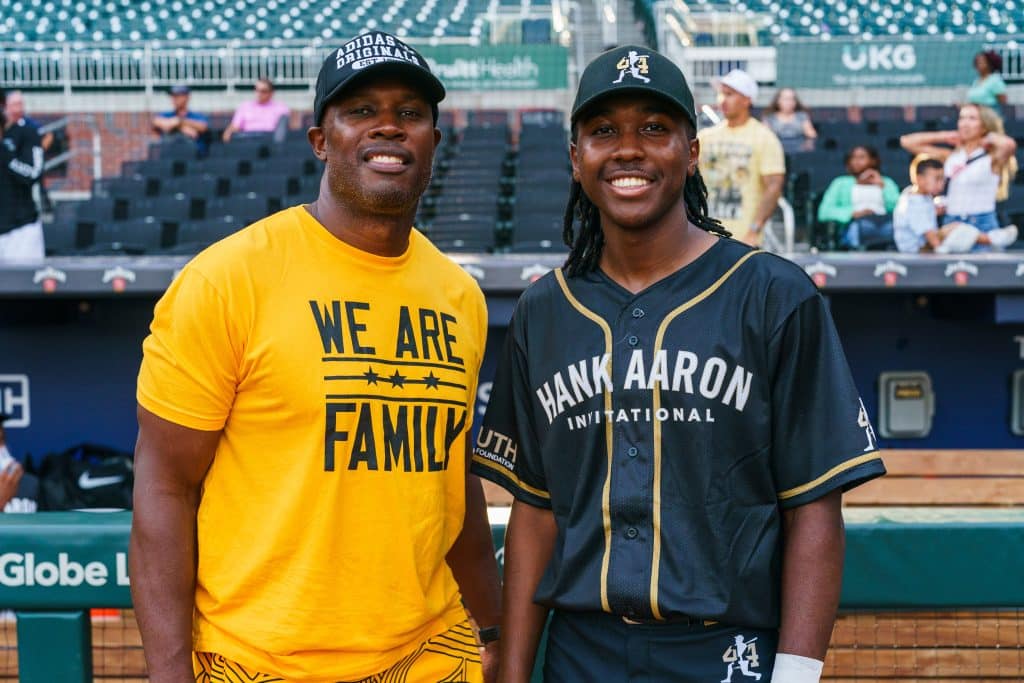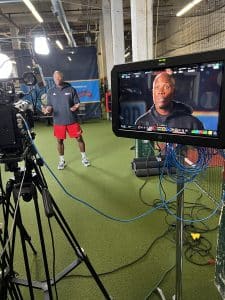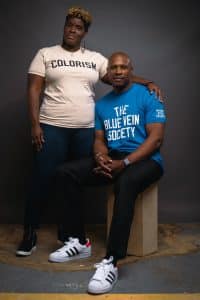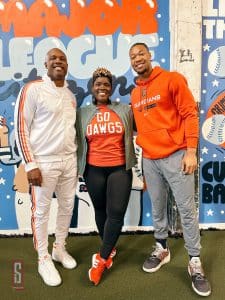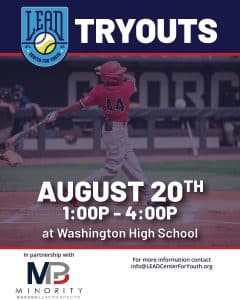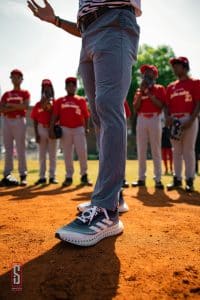Baseball was the first sport invented by Americans which is why it is considered America’s Favorite Pastime. To play baseball was what it inextricably meant to be American. That’s why Rube Foster established the Negro Leagues. They played the game because they loved it and they wanted to be respected as Americans.
Hank Aaron was born in a poor Black section of Mobile, AL, called “Down the Bay.” He later moved to the middle-class Toulminville neighborhood when he was 8 years old. Before playing for the Milwaukee Braves, he established his hitting skills with the Indianapolis Clowns.
I had the pleasure of meeting the late Bill Bartholomay on December 18, 2016, along with John Schuerholz. Mr. Bartholomay told me that as one of the conditions of Hank Aaron coming to Atlanta with the Braves and proving that we were in fact a city “Too Busy To Hate,” he had to be allowed to live anywhere of his choosing in the city. Mr. Aaron chose to live in the middle-class Southwest Atlanta Cascade Community until his death. Ambassador Andrew Young once said of Hank Aaron, “Aaron’s work on the baseball field and being the face of baseball in the Deep South was a form of civil rights activism, showing that achievements can be made if the playing field were equal.”
As I sat in the stands watching the re-branded Hank Aaron Invitational, I thought about the life that Mr. Aaron lived as a Black child trying to become one the greatest baseball players of all time. He lived a life of poverty and middle-class as a child and upper middle-class as an adult.
I am of the belief that the number of African-Americans in baseball will not substantially increase until there are increased resources and exposure for Black youth that are living at and below the poverty level. Whether they know it or not, low, middle and upper-middle class Black youth must receive the benefit of the doubt, respect, and trust in order to gain access to the ranks of becoming a collegiate Power Five and/or professional baseball player.
That is why the Hank Aaron Invitational is so vital. Legacy is what you leave in people. Although Mr. Aaron is no longer with us, his name still carries weight and benefits some of the best young African-American players that are among us.
Scenes from the Hank Aaron Classic at Truist Park on July 30, 2023. Photo by Matthew Grimes Jr./Atlanta Braves
C.J. asked Austin Phillips from Fort Worth, TX, a young man who he mentors and a player in the Hank Aaron Invitational, to share his thoughts on what he experienced: What does it mean to you to be chosen as one of the top 44 participants for the Hank Aaron Invitational?
“It means a lot to me. Being able to come out here to represent the best version of myself, and to also represent my family and the state of Texas is amazing. It is also a great opportunity to learn more about the great Hank Aaron, MLK and the history of Atlanta.”
Hank Aaron was born into poverty and then moved into a middle class community at the age of eight. We know that baseball afforded him an upper class lifestyle. Is there a difference of baseball talent that you’ve seen among players from each of these three socioeconomic classes?
“I wouldn’t say there’s a difference in talent, but I will say there is a difference in access to information and skill training.”
What are some places that you visited while in Atlanta for the Hank Aaron Invitational?
“We got to visit the great MLK birth home, MLK’s church, this delicious restaurant called Paschal’s and one of the nicest fields I’ve been on—Truist Park. If I could, I would visit all these spots again.”
What place did you visit that inspired you the most?
“The place that inspired me the most was definitely Truist Park. Getting to play on a Big League field showed me how much I really enjoyed the game and that one day I want to be able to travel to all sorts of fields to play the game that I love.”
Now that the Hank Aaron Invitational is over, what are your top three specific baseball goals for the next three years?
“One of my goals is to get drafted. Another one is to influence other young Black players to play baseball cause not a lot of us are playing. The last one is to make All-State for my high school baseball season.”
